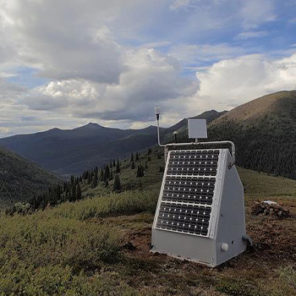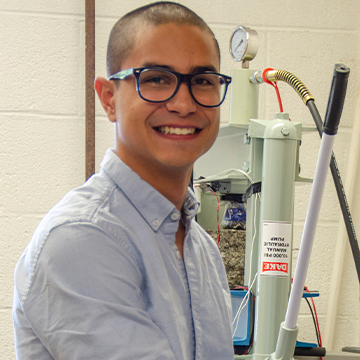The Engineering Department at Eastern Nazarene College is committed to excellence, innovation, undergraduate research, and personal and intellectual growth in a diverse and collaborative Christian community. Students are provided with the tools and resources required to be successful scientists and engineers, preparing them to pursue graduate studies and respond to evolving challenges in the world. Eastern Nazarene College provides students with a unique, well-rounded academic experience that is project-driven, including senior design/research and internship opportunities
Well-rounded Education: General education requirements are emphasized to develop engineering students into well-rounded individuals. Corporations, research labs, and graduate programs seek students who have the ability to work well with people from diverse backgrounds and who understand diverse points of view. Some other four-year programs require students to complete only two electives whereas Eastern Nazarene College provides students with the wider breadth of education they will need to be successful in their profession.
Project Driven: Two laboratory projects are included in all advanced technical courses. This provides students with exposure to advanced lab work, beyond the illustration of basic theoretical concepts. This exposure is a precursor to work experience, which is valued by corporations, research labs and graduate schools who seek students with design experience right out of college.
Internships: Internships: Most of our students benefit from the college’s collaboration with Corporate and Research Experiences for Undergraduates (REU) institutions. Partnerships with the private and public sectors allow our students to participate in internship opportunities that fit their specific areas of interest by their junior year. Most of our engineering students complete two internships before graduation.
Senior Design Course Sequence: Students are required to complete a three-semester course sequence with the goal of contributing to science and/or technology. In this process, engineering students develop a product using basic principles of systems engineering. Students may also contribute to science by advancing the current state of scientific knowledge through innovative and original research, providing students with practical experience before graduation. The senior design/research course sequence is as follows:
- First semester: Students choose an original (new) problem and conduct survey and patent search. The end result of this sequence is an architecture solution to the chosen problem or a hypothesis with research procedures.
- Second semester: Students use the abstract architecture from the first sequence and turn it into a product by replacing the abstract boxes in the architecture with hardware and software. In the case of research, students use the scientific method to collect data in order to verify their hypothesis and arrive at final results and conclusions.
- Third semester: Students develop both a technical and a layman presentation to defend their thesis in the prestigious John U. Free seminar series. Students are also required to publish a paper in a peer reviewed journal.
The Environment: Eastern Nazarene College provides a safe, Christian environment for personal and intellectual exploration. A low faculty-to-student ratio in both classes and labs creates a supportive academic atmosphere where students are encouraged to do their best work. Studying engineering at Eastern Nazarene College, students have access to an advanced technology lab with super computer for advanced computation, laser labs, and advanced laboratory equipment in support of fundamental research on earthquake forecasting. Also available are a signal and systems laboratory, advanced communication equipment for systems design, advanced laboratory equipment for computer architecture design, and advanced laboratory equipment for circuits and electronics including spectrum analyzers.
Eastern Nazarene College & NASA AMES Research
The Physics and Engineering Department at Eastern Nazarene College began to work on scientific methods for earthquake forecasting in the summer of 2013. At the time, very few organizations, with the exception of the NASA AMES Research Center, understood the potential of this science. From 2013 to 2015, the college developed a data assimilation and fusion platform for earthquake forecasting based on the idea that at the onset of an earthquake, the earth’s many voices are silently being unleashed from the deep to reveal changes in dynamics below the earth, to the earth’s surface and all the way to the earth’s atmosphere. These voices were later found to be intimately connected to tectonic plate motions of the earth characteristic of seismic activities announcing the arrival of earthquakes.

The CUBE, a machine created by NASA AMES, is based on the data assimilation and fusion platform concept developed at Eastern Nazarene College.
This technology provided hope, for the first time in the history of earthquakes, that in the near future, a method could be developed that would allow people to forecast the magnitude, geographical location and time of earthquakes, days to weeks before they arrive, just like meteorological forecasts.
The NASA Ames Research Center understood and endorsed the concept proposed by the Physics and Engineering Department at Eastern Nazarene College. NASA AMES developed a data assimilation machine called the CUBE that they have been using over the last few years in the USA (Alaska and California) and Central America (Peru and Guatemala). The CUBE system is now getting ready to deploy in the Caribbean (Haiti and Santo Domingo) and Mexico. Recently, NASA signed a memorandum of understanding with the Haitian Government to start an earthquake forecasting pilot project using science and technology developed at Eastern Nazarene College.




